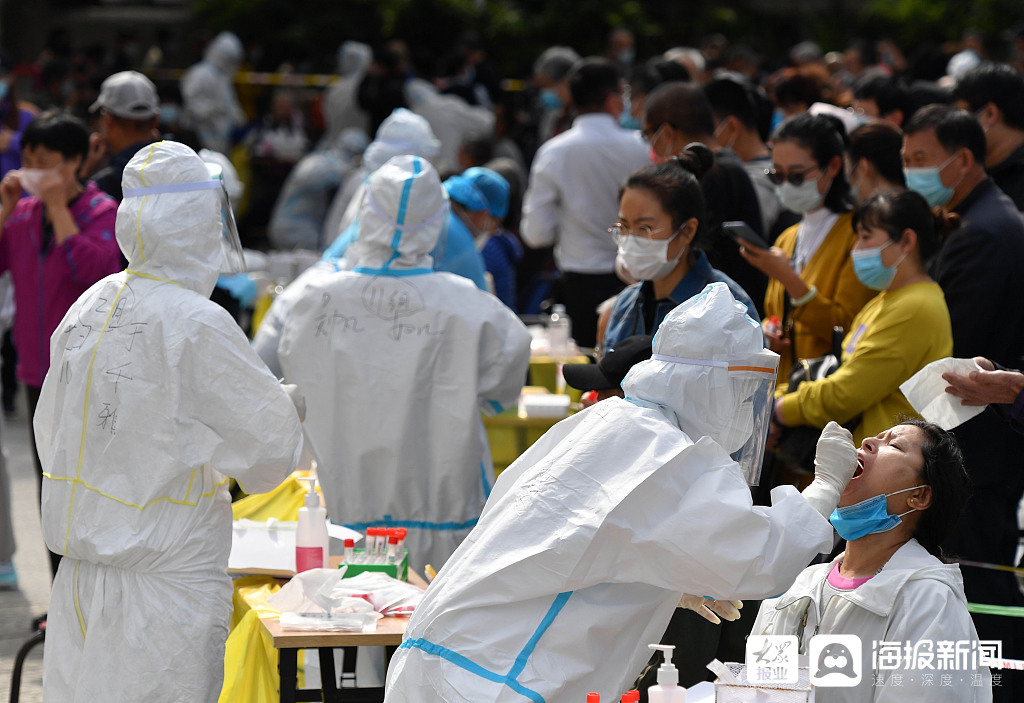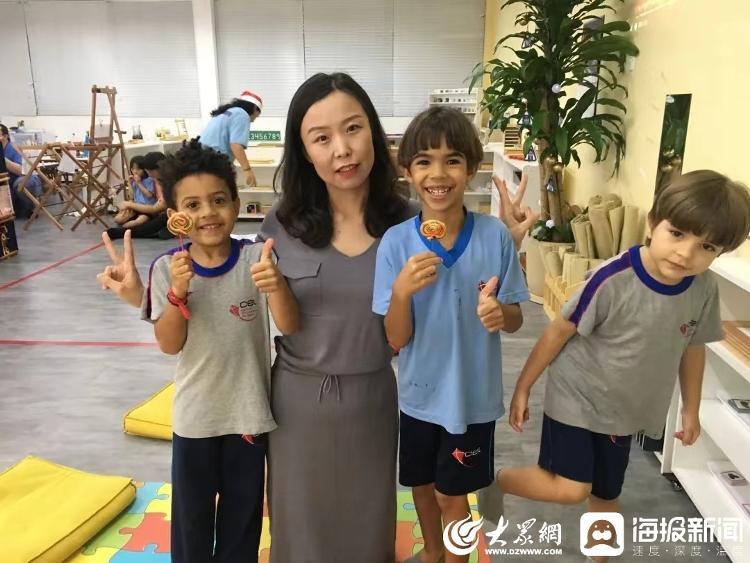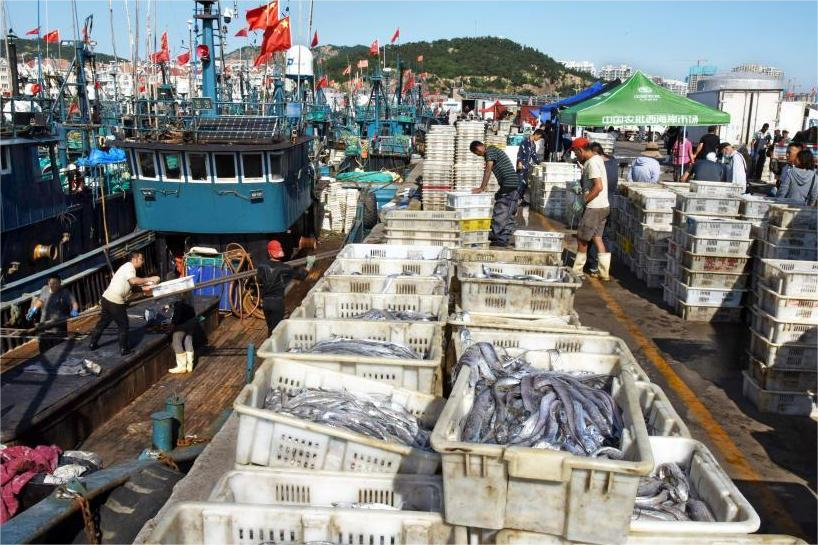【網(wǎng)絡(luò)中國(guó)節(jié)?中秋】世界各地的“月亮節(jié)”
來(lái)源:
2022-09-13 15:26:09
人類(lèi)對(duì)于月亮總有特別的情懷,在世界不少國(guó)家,都有與月亮有關(guān)的節(jié)日。
People always hold special feelings for the moon. Many countries in the world celebrate moon-related festivals.
農(nóng)歷八月十五日,是中國(guó)傳統(tǒng)的中秋佳節(jié)。自古以來(lái),中秋便是寄托情感的最佳時(shí)節(jié)。月餅最初是用來(lái)祭奉月神的供品,后來(lái)人們逐漸把中秋賞月與品嘗月餅,作為家人團(tuán)圓的一大象征。
The Mid-Autumn Festival in China falls on the fifteenth day of the eighth month of the Chinese lunar calendar. Since ancient times, Mid-Autumn Day has been the best time to express emotions. Mooncakes were originally offerings to the goddess of the moon. Later, eating mooncakes and appreciating the moon are gradually regarded as a symbol of family gatherings.
與中國(guó)鄰近的幾個(gè)亞洲國(guó)家都在農(nóng)歷八月十五這天過(guò)節(jié),但是并非叫中秋節(jié),慶祝節(jié)日的方式和美食既有相似也有不同。
Several Asian countries near China share the celebration on this day, only that not all of them call this festival the Mid-Autumn Day. They have various ways to celebrate the festival, and people eat different food on this day.
韓國(guó)人稱中秋節(jié)為“秋夕節(jié)”。秋夕在韓國(guó)是最重要的節(jié)日之一。韓國(guó)在農(nóng)歷八月十五日這天,最重要的是全家人要團(tuán)聚到爺爺奶奶家,祭拜祖先,然后一起賞月。韓國(guó)獨(dú)特的中秋食物——松糕,形如半月,用米粉制成,內(nèi)餡是豆沙、棗泥等,因蒸時(shí)墊有松毛而得名。
The Koreans call this day “Chuseok”, which is one of the most important holidays for them. Onthefifteenth day of the eighth lunar month, the Koreans would go to their grandparents’, worship their family ancestors, and appreciate the moon. Songpyeons, or pine cakes, are the Korean traditional food for Chuseok. These half-moon-shaped rice cakes typically contain sweet fillings like red bean paste and date paste. Songpyeons are steamed over a layer of pine needles, and that’s where the name songpyeon comes from — “song” means pine tree.
泰國(guó)人把中秋節(jié)叫做“祈月節(jié)”。泰國(guó)首都曼谷市在祈月節(jié)前夕就會(huì)張燈結(jié)彩,熱鬧非凡。農(nóng)歷八月十五之夜,男女老少都要參拜月亮。既然是過(guò)節(jié),美食當(dāng)然少不了,中秋節(jié)前后正好是柚子最好吃的季節(jié),柚子又大又圓,也象征“團(tuán)圓”。泰國(guó)是一個(gè)華裔頗多的國(guó)家,月餅也是節(jié)日美食,融合了當(dāng)?shù)靥禺a(chǎn),特別流行榴蓮餡的月餅。
The Thai also celebrated the Mid-Autumn Day, and they call it the Moon Festival. Before the festival, everywhere in Thailand’s capital Bangkok will be festively decorated. On the night of the festival, everyone worships the moon. Gourmet foods are of course indispensable for a Festival. At that time,pomelos taste best; the big and round pomelos also stand for “family reunion”. There’re a lot of people in Thailand who have Chinese ancestry, so mooncakes are also a festival food. The mooncakes in Thailand incorporate local features, for example, durians are made into popular mooncake fillings.
日本人稱中秋節(jié)為“月見(jiàn)節(jié)”。日本人過(guò)中秋吃的不是月餅,而是江米做的“團(tuán)子”,它形狀各異,餡兒以豆沙為主。
In Japan, the Mid-Autumn Festival is named Tsukimi or Otsukimi (literally means moon-viewing). Unlike the Chinese, who eat mooncakes to celebrate the festival, the Japanese usually eat eating rice dumplings called Tsukimi dango, which come in various shapes and mainly have red bean paste as fillings.
與中國(guó)一樣,越南人也在農(nóng)歷八月十五過(guò)中秋節(jié)。所不同的是,這一天同時(shí)還是越南“兒童節(jié)”。當(dāng)天,家長(zhǎng)們會(huì)帶著孩子們?nèi)ビ螛?lè)場(chǎng)玩耍。
In Vietnam, people celebrate Têt-Trung-Thu (tet-troong-thoo) on the fifteenth day of the eighth month of the lunar calendar. The day is also regarded as the Children’s Festival in Vietnam. On that day, parents would take children to amusement parks.
中秋節(jié)可并非都在農(nóng)歷八月十五這天,由于地理位置的不同月圓之日也不同。
Not all “Mid-Autumn Days” are celebrated on the fifteenth day of the eighth month of the lunar calendar. That’s because on different locations, the full moon occurs on different days.
在中國(guó),只有1個(gè)中秋節(jié)。但是在這個(gè)國(guó)家,一年要過(guò)12次,且每次都放假,它就是熱帶島國(guó),印度洋上的“明珠”——斯里蘭卡。斯里蘭卡的“月圓節(jié)”,是按佛歷習(xí)俗流傳的,每月當(dāng)月亮圓時(shí),就要過(guò)一次“月圓節(jié)”。
China celebrates the Mid-Autumn Festival only once a year. But in this country, it’s a monthly holiday -– Sri Lanka, a tropical island country renowned as the “pearl” on the Indian Ocean. Celebrated on every full moon day of each month, Full Moon Poya Days are important for Buddhists in Sri Lanka who observe the lunar calendar.
在坦桑尼亞,每當(dāng)公歷九月的月圓之夜是坦桑尼亞的“月圓節(jié)”,人們來(lái)到空曠處,圍成一個(gè)個(gè)圓圈,默默地坐下,直到月亮高懸空中,人們才打破沉默,并舉行慶祝活動(dòng),歡度一年一度的節(jié)日。
Tanzania’s full moon holiday falls on the full moon night in September. On that day, people come to an open area, sit in a circle silently, and won’t celebrate the annual holiday until the moon is high up in the sky.
“海上生明月,天涯共此時(shí)”。雖然各國(guó)舉辦“月亮節(jié)”的時(shí)間不一,風(fēng)俗各異,但都不約而同地傳達(dá)著人們對(duì)自然的敬畏、對(duì)豐收的喜悅、對(duì)親情的重視。
A line in a famous Chinese poem reads: “As the bright moon shines over the sea, from far away you share this moment with me.” Although different countries have their own time and customs concerning the “moon holiday”, they share the awe for nature, the joy from harvest and the importance they attach to family.

想爆料?請(qǐng)登錄《陽(yáng)光連線》( https://minsheng.iqilu.com/)、撥打新聞熱線0531-66661234或96678,或登錄齊魯網(wǎng)官方微博(@齊魯網(wǎng))提供新聞線索。齊魯網(wǎng)廣告熱線0531-81695052,誠(chéng)邀合作伙伴。
共享新發(fā)展機(jī)遇 共贏可持續(xù)未來(lái)
- [詳細(xì)]
- 人民網(wǎng) 2022-09-13
“金鑰匙”開(kāi)啟投資中國(guó)市場(chǎng)的大門(mén)
- [詳細(xì)]
- 人民日?qǐng)?bào)海外版 2022-09-13
譚談:今天的美元,昨日的英鎊
- [詳細(xì)]
- 玉淵譚天 2022-09-13
美最新研究:新冠病毒使至少50萬(wàn)人脫離美國(guó)勞動(dòng)力市場(chǎng)
- [詳細(xì)]
- 央視新聞 2022-09-13
蒂姆:我包的餃子同樣美味 | 老外講故事·海外員工看中國(guó)⑥
- [詳細(xì)]
- 新民晚報(bào) 2022-09-13
賈亞:中國(guó)企業(yè)給員工“家”的溫暖 | 老外講故事·海外員工看中國(guó)⑦
- [詳細(xì)]
- 新民晚報(bào) 2022-09-13
暴力泛濫威脅美國(guó)民眾安全
- [詳細(xì)]
- 人民網(wǎng) 2022-09-13
美民調(diào):種族差異長(zhǎng)期存在于美國(guó)醫(yī)療體系,民眾滿意度非常低
- [詳細(xì)]
- 海外網(wǎng) 2022-09-13
共促安全穩(wěn)定和發(fā)展繁榮(和音)
- [詳細(xì)]
- 人民網(wǎng) 2022-09-13
東盟積極推動(dòng)電力互聯(lián)互通(國(guó)際視點(diǎn))
- [詳細(xì)]
- 人民網(wǎng) 2022-09-13
高質(zhì)量共建“一帶一路”(之四)
- [詳細(xì)]
- 人民網(wǎng) 2022-09-13
新聞分析:美國(guó)人均預(yù)期壽命“歷史性”下降 暴露深層次社會(huì)痼疾
- 新華社洛杉磯9月5日電新聞分析 美國(guó)人均預(yù)期壽命“歷史性”下降暴露深層次社會(huì)痼疾。美國(guó)機(jī)構(gòu)近日發(fā)布報(bào)告顯示,2021年美國(guó)人均預(yù)期壽命較...[詳細(xì)]
- 2022-09-06
美媒:美國(guó)數(shù)百萬(wàn)人因“長(zhǎng)新冠”丟掉工作 政府應(yīng)出來(lái)應(yīng)對(duì)
- 美國(guó)洛杉磯民眾接種新冠疫苗(資料圖)。海外網(wǎng)9月6日電據(jù)美國(guó)《國(guó)會(huì)山報(bào)》5日?qǐng)?bào)道,新冠后遺癥正在影響美國(guó)的勞動(dòng)力市場(chǎng),約有數(shù)百萬(wàn)美國(guó)...[詳細(xì)]
- 海客新聞客戶端-熱點(diǎn) 2022-09-06















